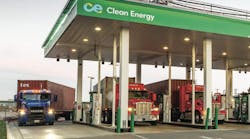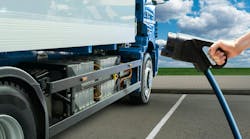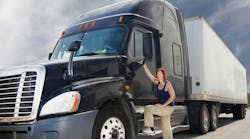Usually, DDS are the initials after your doctor of dental surgery. Change is about as fun and pain-free as getting your tooth pulled, a root canal drilled out, and an implant put in. Not much fun in anyone’s book.
I got to thinking about all the disruptions in transportation and the delivery of “stuff” from one place to another. I hear from others that Millennials don’t want “stuff,” but experiences. They want to go places and do things. As people are aging, fewer want an expensive casket, flowers, and a permanent place in the earth. Instead they want money given to a favorite charity and ashes spread somewhere with a fond memory. I hear that Africa will be the next “big” build out for infrastructure and growth of low cost wages. You can look at a picture of the earth from satellites and see why it is called “the dark continent.” Twenty years from now, it will be lit up much more than today with industry and construction. We have packages being measured and weighed now. Drones are making trial deliveries to rural and city locations. Forget walking around the grocery store. Order your “stuff” by voice while driving hands free, park in the “stop and go” parking spot and have someone race out to your car with your groceries. UPS has created a hub of 3D printers in Atlanta, cutting in half the travel of a part since it no longer needs to go from the manufacturer to the UPS hub, but is already there. Technology is forcing change nearly everywhere and to everything.
Faced with complexity, a good approach is to get back to basics. Usually B2B stands for Business to Business marketing and sales. In this case, I’m coopting that term to mean Back to Basics. The basic questions are: 1. What “stuff” do people need? 2. What “stuff” do people want? It’s NoW—Need or Want.
Clearly, people need food and water. Shelter and clothing would likely be a need as well since we are no longer in the Garden of Eden running around without need for those things. Maslow’s Hierarchy of Needs has never been proven, but still is a good model. The physiological needs at the base of the pyramid describing the NoW of people includes clean air and the ability to procreate.
The next level is safety. Throughout history, that seems to have meant we need weapons to attack others and more weapons to resist the attack or make the other party think twice. Since we need clean air and water and food and clothing and shelter, we also need to protect the ability to produce these items.
The next step up in NoW is love and belonging. This suggests to me it is where we all want to have fun with others, be entertained, go places and experiencing things.
Over the centuries, we moved to a system where-by much of everything that need to be created is centralized somewhere and transported to another place. Clothes are made inexpensively in Indonesia, India, and China, then shipped and trucked to people in other parts of the world. Oranges are grown in Florida and California and transported elsewhere.
But, what if, we returned to local production, on demand? What if we went places with our virtual reality goggles and physical simulators? What if more and more of our Needs or Wants (NoW) could be produced on demand, right where we are?
We no longer deliver newspapers to people, because they can look at the news where ever they are, on demand without the need to have large buildings with hundreds of people printing the news and delivering it. Pizza delivery has moved from bake it in the store to Papa Murphy’s now planning on moving from pickup of a fresh pizza ready to be baked in your own oven to delivering the ready-to-cook pizza to your home. Instead of keeping things hot and them continuing to cook, now they will be chilled in transit. Many a parent is disturbed that their children can spend hours on the couch playing games on their game consoles rather than going to the movie house to watch a double feature. What if the game console is more of an electronic, virtual reality system with an exercise machine built in? What if they can put together a baseball team of friends from around the country and agree that the game starts at 11AM Eastern? What if we could play soccer right in our living rooms and get all the fun, excitement, and exercise without having to travel somewhere? What if we all have 3D printers in our homes in 20 years, the way we all have simple printers today? Could I order a new plastic kitchen utensil and have it printed for me in my own home?
Remember, lots of things sounded pretty silly twenty and forty years ago. So, what will we call this new delivery service. It’s going to modify how entities such as USPS, UPS, FedEx, DHL, and all the others do things. I’m thinking they will not be delivering as much “stuff” as information packets. Substituting packets of information for mail packets or parcels, I’m suggesting we call this the UPDS for Universal Packet Delivery Service.
Of course, it’s not as simple as that. Even home manufactured items will need raw materials and supplies. But, if we can cause the decline of the centralized shopping mall. We can certainly cause the decline of centralized manufacturing plants to some degree.
So, let’s talk further. Let’s get B2B (Back to Basics), figure out NoW what people want or need. Then figure out the best way to give it to them through the UPDS, Universal Packet Delivery Service.


